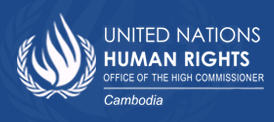
OHCHR has contributed to the professionalisation of the whole prison system by focusing on the development of proper legislation in line with international standards, capacity-building for new recruits and other untrained staff of the General Department of Prisons (GDP) and local prisons, the review of the training structure within the GDP, water, sanitation and hygiene improvement of local prisons, database system upgrades and due process for releasing prisoners.
Two examples of this contribution, which can be regarded as best practice, are the regular communication between prisons and courts before prisoners are released and the installation of a rain-water harvesting system for Siem Reap prison which also has the additional benefits of providing water free of charge, while helping to preserve the underground water resources.
While both prison official trainers and their trainees have been supported to visit some model prisons, OHCHR also visits all prisons in Cambodia and conducts interviews with detainees. These visits allow OHCHR to provide an independent and objective assessment of prison conditions and to work with the government to help meet the UN Standard Minimum Rules for the Treatment of Prisoners. The visits also allow trainers and new recruits to have hands-on experience and test and improve on their theoretical knowledge and training programme in a practical context.
Furthermore, OHCHR has been playing critical role in advocating for the review of the former Cambodia national preventive mechanism (NPM), which is an inter-ministerial committee, resulting in the adoption of two new Royal Decrees related to the establishment and nomination of the National Committee against Torture in August and November 2017, and in coordinating the regular communication between the Committee Against Torture (CAT),the UN Subcommittee on Prevention of Torture (SPT) and the NPM.